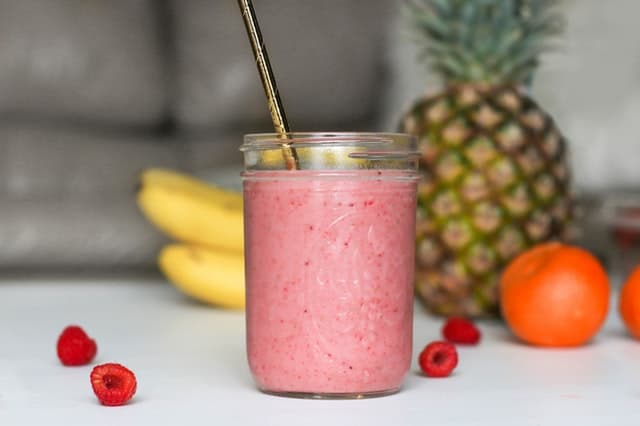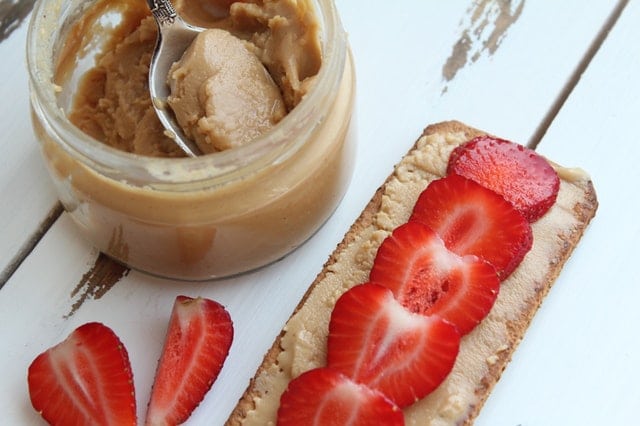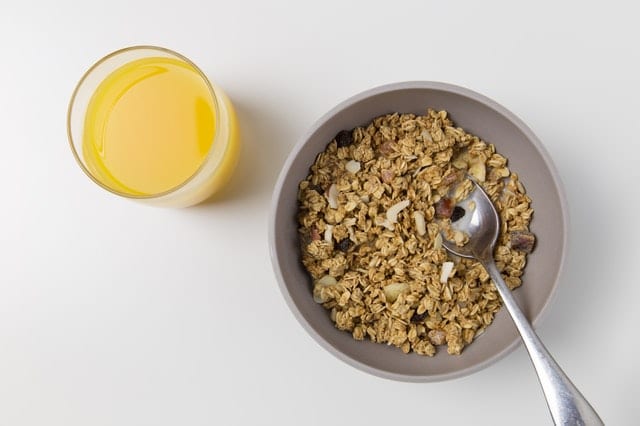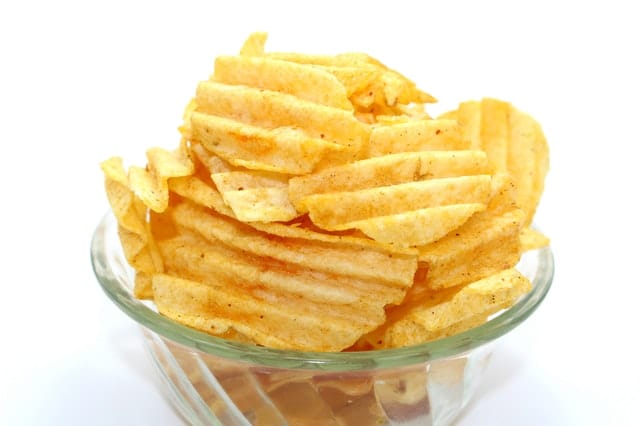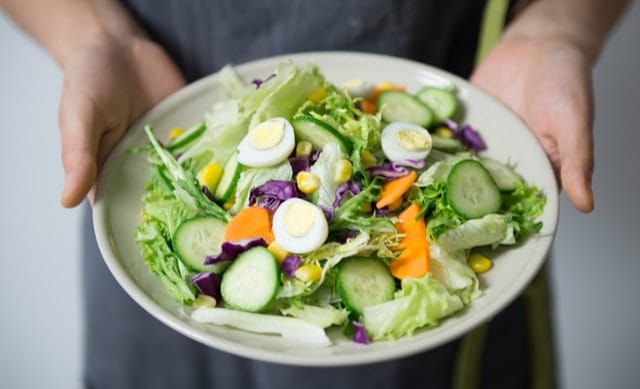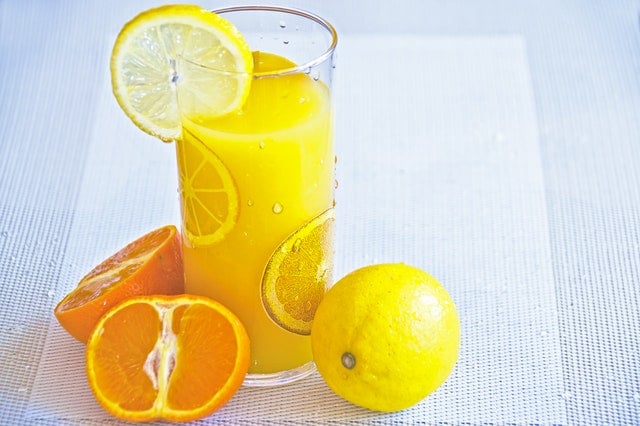Foods You Thought Were Heart-Friendly But Are Not
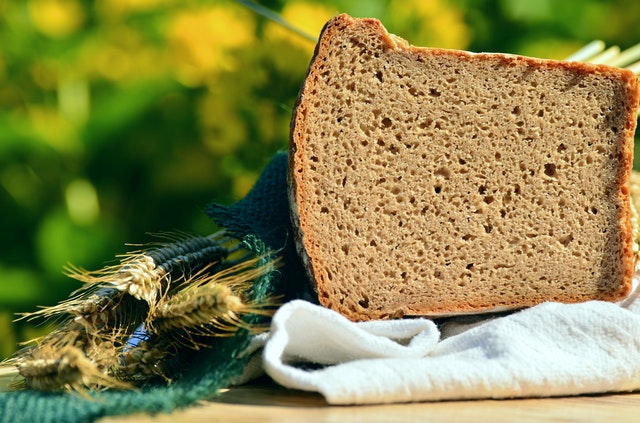
In the daily struggle of crafting meals to fit a healthy diet, choosing the right foods is probably the most challenging part. Commercially-available foods are usually labeled with the nutritional information, but not every company identifies the ingredients in an honest manner. It’s for this reason that selecting nutritious foods from your local grocery store can be difficult at times.
There are also plenty of foods that have traditionally been considered good for you but actually hide dark secrets. Most people have no idea that these so-called healthy foods can give the exact opposite of the benefits they’re promoted to provide. We’re here today to take a look into some of these, to give you a better idea of what to buy when planning your meals.
-
Smoothies
Craving a cold and creamy smoothie on a hot day? You’d better think twice. While smoothies are comprised of healthy components like pureed fruit or vegetables blended together with crushed ice and dairy products, they usually also contain massive amounts of sugar.
Watch out for prunes, raisins, and dates – they each respectively contain 66, 86, and 93 grams of sugar per cup. Mangoes are another favorite smoothie fruit that has a high sugar content – 46 grams per fruit.
A diet with an excess of sugar can increase the risk of contracting heart disease by raising blood pressure and stimulating the liver to dump harmful fats into the bloodstream.
-
Reduced-Fat Peanut Butter
While the idea sounds good when you read it aloud, practical applications aren’t as well. Peanut butter is rich in monounsaturated fats which are good for your heart. They reduce cholesterol levels in the blood and provide nutrients – both actions which significantly lower the risk of heart disease.
According to the American Heart Association, monounsaturated fats are the healthiest kind of fats and should comprise somewhere between 20 to 35 percent of your daily caloric intake.
The problem is that when commercial companies remove this valuable resource, they need something to replace it with in order to maintain the peanut butter’s creamy texture. The fillers that are added are usually cornstarch and sugar. If faced with the choice, go for the regular peanut butter. It’s pretty much just made of ground peanuts and salt and you get more healthy fats and less sugar.
-
Granola
This popular breakfast food has always enjoyed a reputation for being associated with healthy and natural living. It’s made up of rolled oats, nuts, honey or other sweeteners, and usually eaten in combination with berries, yogurt, fresh fruit, or milk. Granola is typically eaten as a snack during workout activities or carried during hiking and camping.
“So, what’s the big deal? All those ingredients you just mentioned are good for me!”
For sure, but the devil’s in the details. And although it has a lot of healthy ingredients, the biggest issue with commercial granola is its sugar content. Granola bars contain anywhere between 5 to 15 grams of sugar per serving and granola cereals are even worse; around 20 to 36 grams per cup.
-
Chips
While some chips like whole wheat tortilla chips are okay, most corn and potato chips contain too much sodium. Excess sodium increases blood pressure which in turn increases the risk of heart failure, stroke, and osteoporosis.
Salt intake is also heavily associated with an increase in obesity as per a study which found that it makes you thirstier.
Another factor is in the method with which they’re cooked. The food industry commonly uses trans fats in the production of chips and these harmful fats can clog up arteries and increase cholesterol levels.
-
Trail Mix
In the late 1800s, an outdoorsman named Horace Kephart introduced trail mix to hikers who were traversing the Appalachian Trail. The initial mixture contained nuts, raisins, and chocolate. It became highly lauded soon thereafter for being one of the healthiest snacks you can eat while on the road.
Although most of the ingredients in trail mix have very good nutritional profiles, others only serve to drag it down. M&Ms, candies, or chocolates are common additions to trail mix and add no extra value. Many mixes also contain an overabundance of salt and sugar, both of which in excess can influence cardiovascular disease.
-
Salads
When we think of “salad”, we think of crunchy vegetables and tofu drizzled with a delectable dressing. Of course, eating leafy greens is good for your health; but the danger lies in the salad dressing.
Heavy dressings pack heavy calories and can contain an inordinate amount of sodium as well. One single typical restaurant salad can provide you with more than enough calories for one meal and more than your daily allowance of sodium.
That doesn’t mean you have to give up your favorite food though. A good health tip is to avoid dressings that are too thick. Great ones to try are Skinny Caesar Dressing or a Honey Mustard Vinaigrette. If you really can’t resist the creamier ones, ask for it to be set aside separately when eating out at restaurants.
-
Juice
Juice is one of the most deceptive foods on the market. There are many different variants of juice ranging from “real fruit beverages” to “fruit punch” to “fruit cocktails”. Many of these beverages are closer in content to soda than actual fruit juice. Check labels carefully when purchasing juice to find 100 percent natural fruit juice extracts.
However, it turns out that even drinking real natural fruit juice could be bad for you. According to scientific studies conducted by the Swinburne University of Technology in Victoria, Australia, those that have a glass of juice every day are putting themselves at risk to high blood pressure, cardiovascular disease, and cognitive impairment.
Dr. Matthew Pase, who is the lead author of the study, advises to monitor heart health by visiting a clinic if any out-of-the-ordinary symptoms manifest.
-
Wheat Bread
Here’s another product that has become a victim of dishonest marketing. You’ll need to check the nutritional information label to determine if the product says “100-percent whole wheat”. If it doesn’t, then it’s most likely just white bread with a tiny amount of wheat flour mixed in.
Bread manufacturers do this on purpose to make their product seem healthier. If the word “enriched” is included anywhere in the ingredients, the bread isn’t 100 percent whole wheat.
The process by which white bread is created is known to strip it of most of its natural nutrients and vitamins. The simple carbohydrates contained within the flour are broken down into single units of sugar which can cause crashes in blood sugar levels.
-
Frozen Yogurt
Yogurt-lovers get a good healthy dose of animal protein, calcium, vitamin B2, vitamin B12, potassium, and magnesium with every serving of the creamy and delicious dessert that they indulge in. Additionally, they get to take advantage of probiotics that promote a healthy digestive tract.
But that’s not all they get.
Studies show that frozen yogurt products have more sugar in them to compensate for the lack of fat. They also contain the same number of calories as a cup of ice cream, which as we all know isn’t a very healthy snack. Too much sugar can trigger weight gain, lead to acne, and increase your risk of heart disease.
-
Dried Fruit
Dried fruits are another healthy snack that are chock full of micronutrients, fiber, and antioxidants. They’re generally a good healthy food to partake of, given their consumption in moderation.
The problem with dried fruit is that some manufacturers add extra sugar or coat them with syrup to make it sweeter. Added sugar has been repeatedly shown to increase the risk of obesity, heart disease, and even cancer.
An additional harmful factor is the sulfites that producers add to dried fruit to preserve it and prevent discoloration. While it rarely happens, some dried fruits which have been improperly stored may become contaminated with fungi, aflatoxins, and other harmful toxic compounds.
Summary
Don’t take so-called healthy foods at face value. Do appropriate research before considering them as an addition to your diet plan. As with most foods, all of the items on our list can be eaten in moderation, but some should definitely be avoided if you have a history of heart disease in the family or are already experiencing symptoms of high blood pressure.

